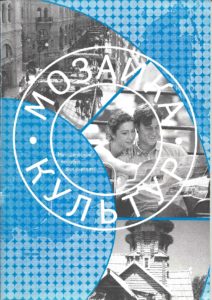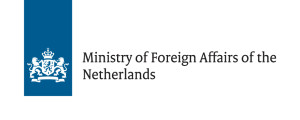The Multicultural character of the Russian Federation is not reflected in the history education which has a strong Russocentric approach. History education provides no answers or understanding for the multicultural society in Russia, neither for the ethnic conflicts and tensions at hand.
Project Aims
[su_list icon=”icon: caret-right”]
- To create consciousness about and diminish ethnocentrism, xenophobia, racism and anti-Semitism
- To raise interest, respect and tolerance between different nationalities, ethnic and religious groups
- To raise awareness about the problems of national self-determination and ethnocentrism
- To discuss openly the merits and drawbacks of national self-determination, using facts and arguments instead of myth and ideology
- To diminish the ethnocentric Russian approach in history education
- To initiate a balanced multicultural approach in Russian history education
- To develop educational materials matching these demands
- To create a group of history educators in Russia working actively on these challenges and disseminating the results
- To train teachers how to deal with multicultural society in the history classroom in a responsible way and provide them with teaching material
- To create a wide network in Russia dealing with these challenges
- To develop and strengthen the network of history educators in Russia
- To support the existing History Teachers Associations strengthen newly founded Associations of History Teachers and encourage the foundation of new History Teachers Associations in Russia
- To support the further integration of Russian history educators into the European-wide EuroClio network
Results
[su_list icon=”icon: caret-right”]
Educational publication
100-150 pages, 10.000 copies. Ready to use for Russian classroom practice. Innovative and multicultural. With pedagogical and didactical recommendations
Teachers and Students book available online in Russian
Teacher training:
2.1 At least 300 history educators trained
2.2 Several tens of teacher trainers trained
2.3 Application of project materials and ideas in at least 10 teacher training institutes in Russia
Several 100 teachers are each year educated by these institutes
2.4 Each school year more than 30.000 Russian pupils will be educated with help of the materials and ideas of the project. This number will increase as more teachers will be trained every year
History educators network
3.1 A strong and active network of history educators over most of Russia
3.2 Organised history educators able and willing to innovate
3.3 Critical and constructive approach towards the role of history education in society
3.4 International relations and awareness of international developments in history education
The final project report can be found here: Final Report PDF-EN
[/su_list]Contributors
Coordinators: Alexander Shevyrev (Moscow State University), Tamara Eidelman (Moscow High School).
Authors: Marina Erokhina , Liudmila Gatagova, Julia Kushnereva, Viktor Shapoval, Olga Strelova, Arthur Tsutsiev, Irina Ukolova, Svetlana Yalovitsyna.
Experts: Alexey Feldt, Rauf Gizatullin, Viacheslav Jiburtovich, Taisiya Korepanova, Rumiana Kusheva, Ian Blair McKellar, Harald Frode Skram, Dean Smart, Evgueny Viazemsky.
Project Managers
Joke van der Leeuw-Roord, EuroClio Executive Director
Huibert Crijns, EuroClio Project Manager


